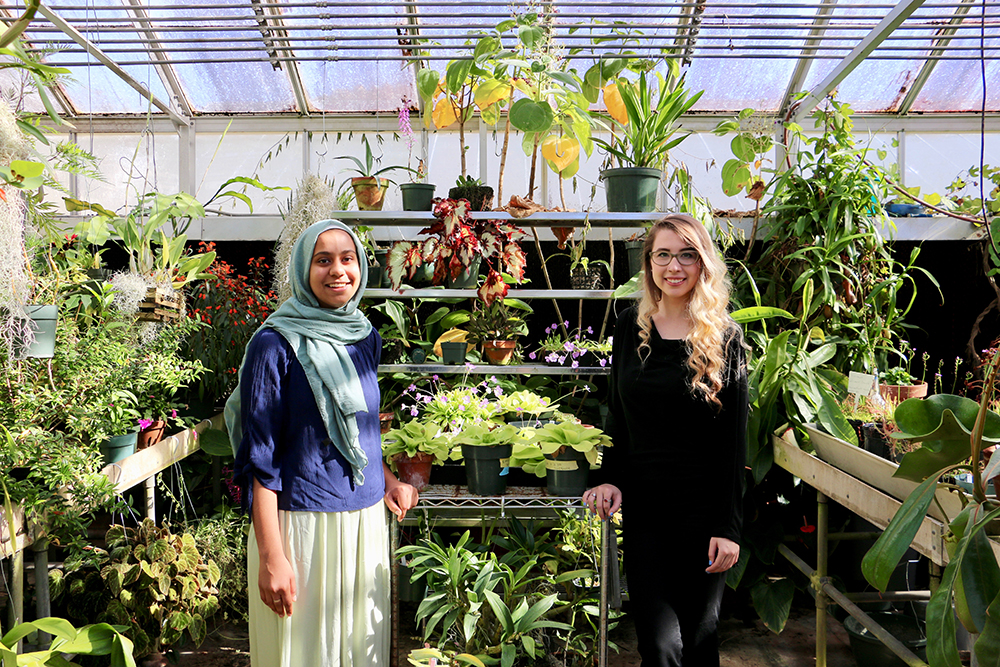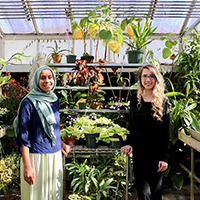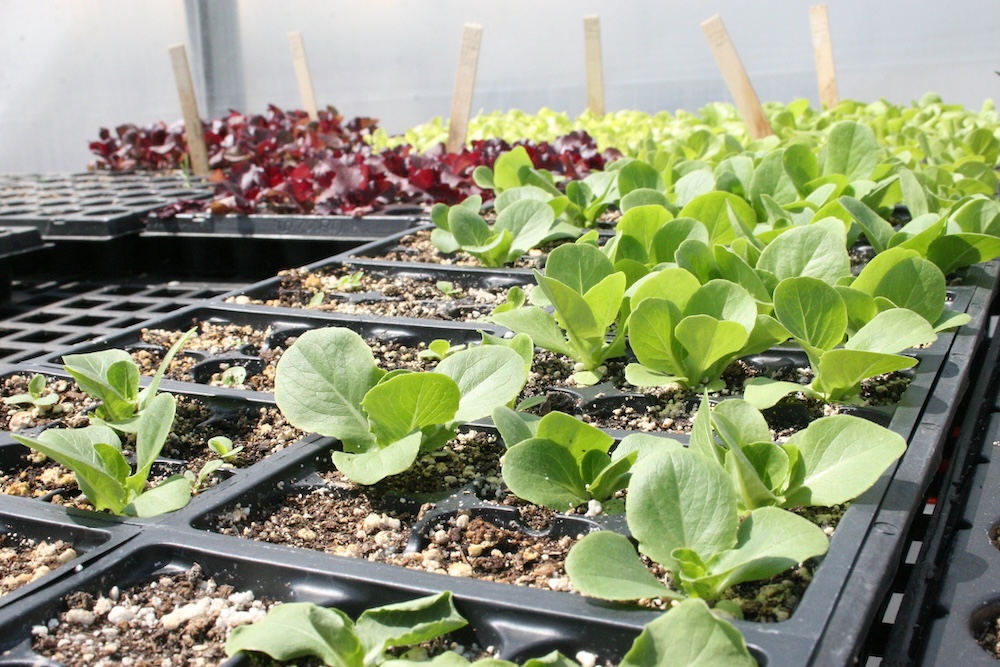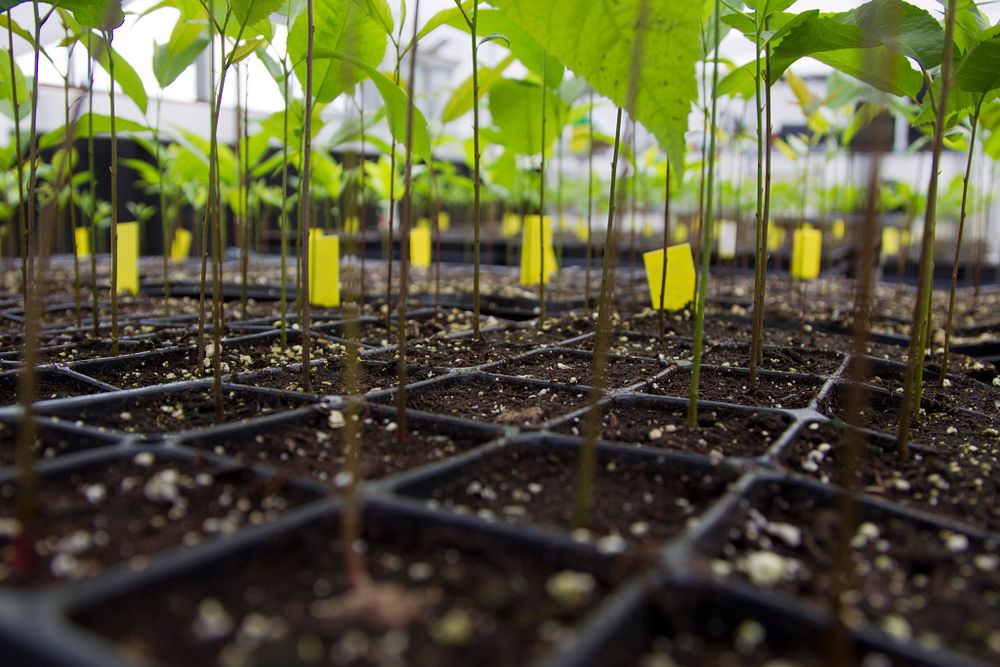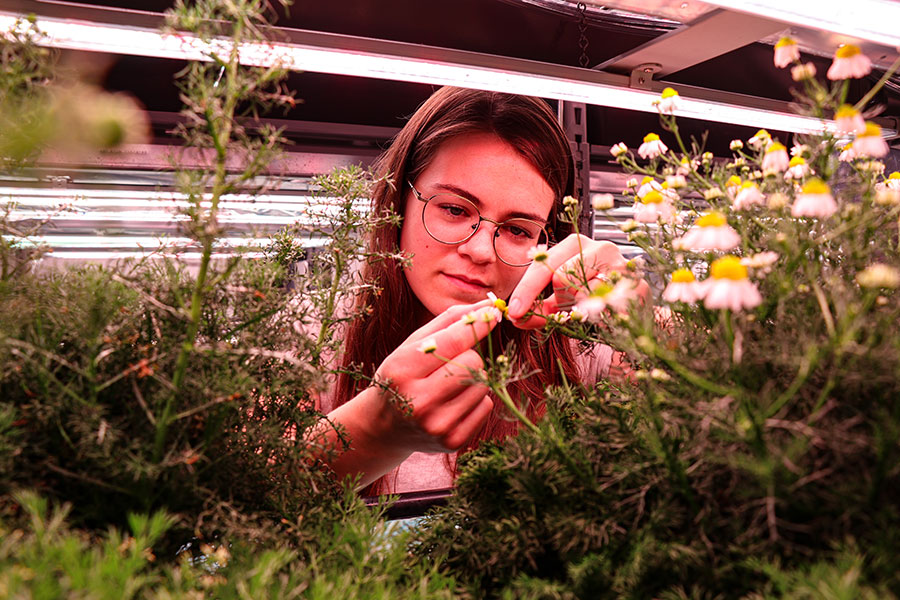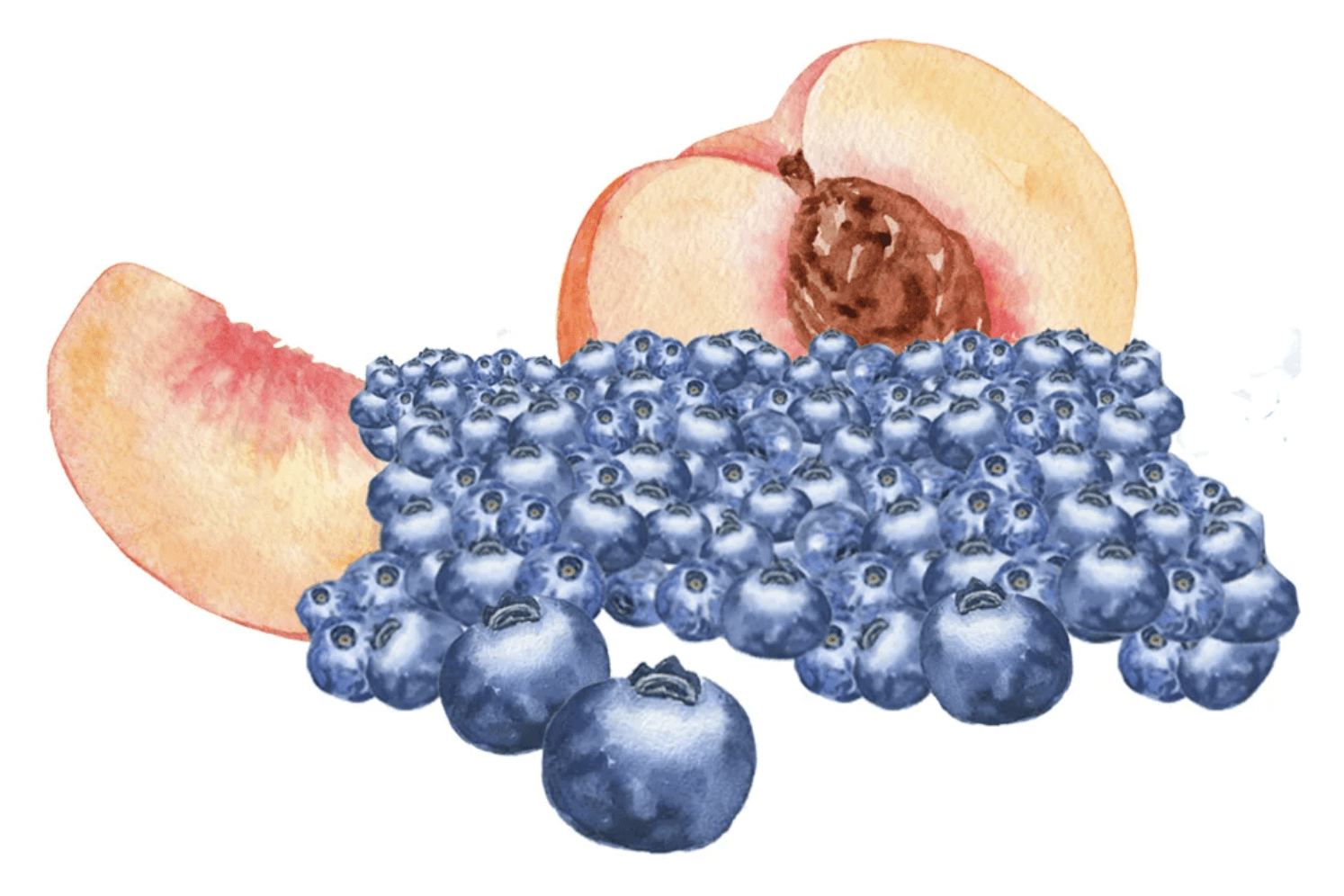When the public thinks of NASA, the first images that come to mind are often rockets or satellites. In the future, images of greenhouses might also make the list.
This spring, University of Georgia undergraduate students Ruqayah Bhuiyan and Niki Padgett will head to the Kennedy Space Center in Florida for research internships focusing on ways to grow food in space.
Bhuiyan, a horticulture student in the UGA College of Agricultural and Environmental Sciences, and Padgett, a biology student in the UGA Franklin College of Arts and Sciences, were selected from hundreds of applicants for NASA’s spring internship program.
“Our students do all kinds of interesting internships,” said Marc van Iersel, professor of horticulture in CAES and a pioneer in controlled-environment agriculture. “But to have two UGA students selected for a NASA internship is unique and exciting. These are clearly two outstanding students with a passion for science and research. They will represent UGA very well.”
A native of Athens, Georgia, Bhuiyan will graduate in 2019. She hopes her work at NASA will strengthen her understanding of controlled-environment agriculture. Whether it’s on the International Space Station or on a more earthbound farm, the future of agriculture is going to be about growing more with fewer resources, she said.
"The research that they’re doing at the center is something that I’ve always been interested in,” Bhuiyan said. “They have to use minimal resources — water, media, and lighting because they are restricted to what they have in the Space Station. I’ve always been interested in working in that kind of environment — working to produce food for as many people as possible using limited resources.
“This type of research, I’m sure, could be applied to many large-scale farming operations in the future.”
Bhuiyan is specifically interested in the mechanics of systems that maximize the production of food in closed environments.
Padgett, who is from Buford, Georgia, plans to graduate in 2018. She is interested in studying the symbiotic relationships between plants and microbes and how those relationships can help keep plants healthy in closed environments.
“It’s always been my dream to work for NASA as a research scientist. It’s wonderful to step into that dream so soon,” Padgett said. “I’ve worked hard to get to this position … I can not think of a more fascinating, or rewarding, experience than to work on growing life to sustain human life beyond our atmosphere.”
For more information about the UGA Department of Horticulture, visit www.caes.uga.edu/departments/horticulture.html. For more information about the UGA Department of Plant Biology, visit www.plantbio.uga.edu/.

